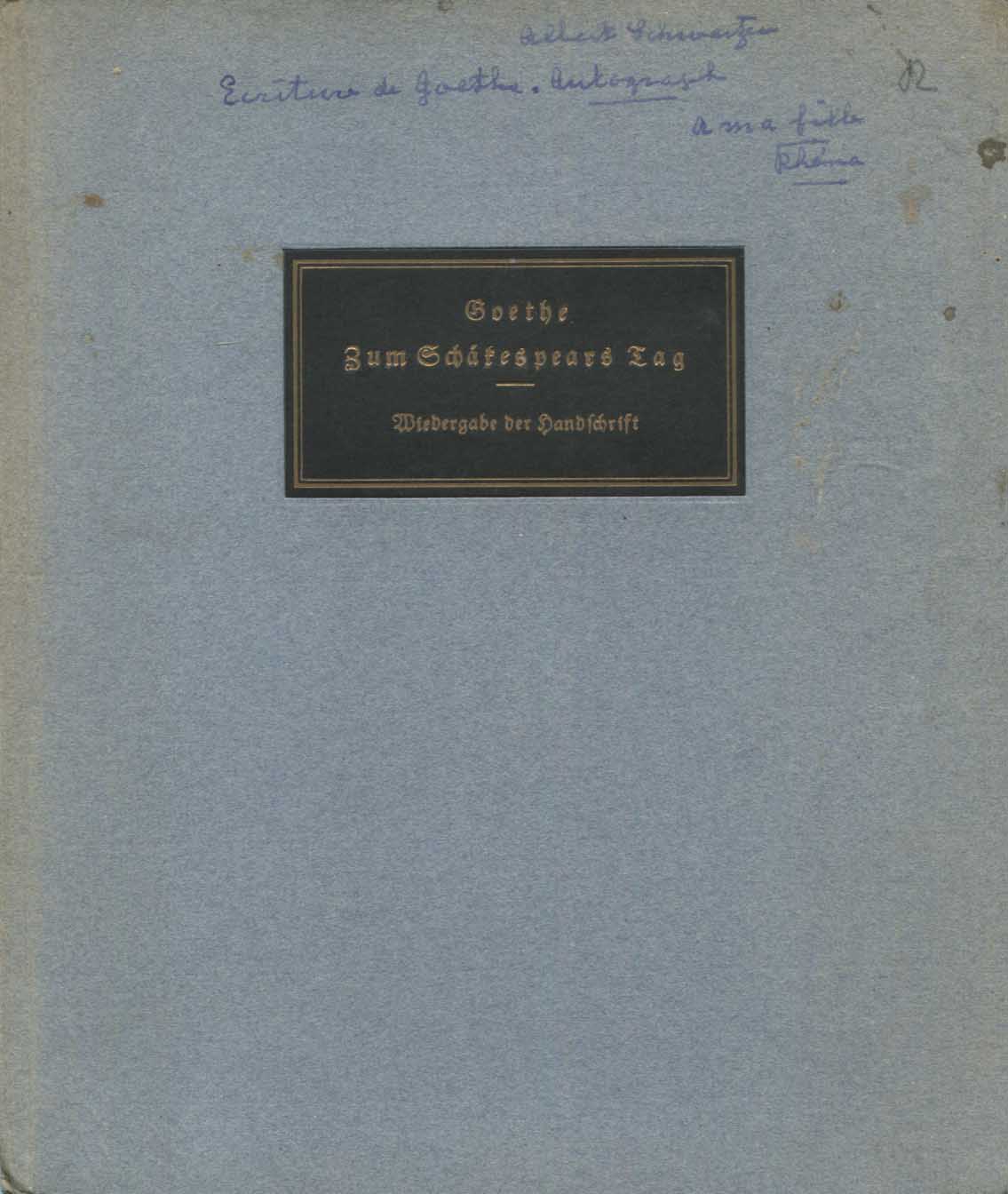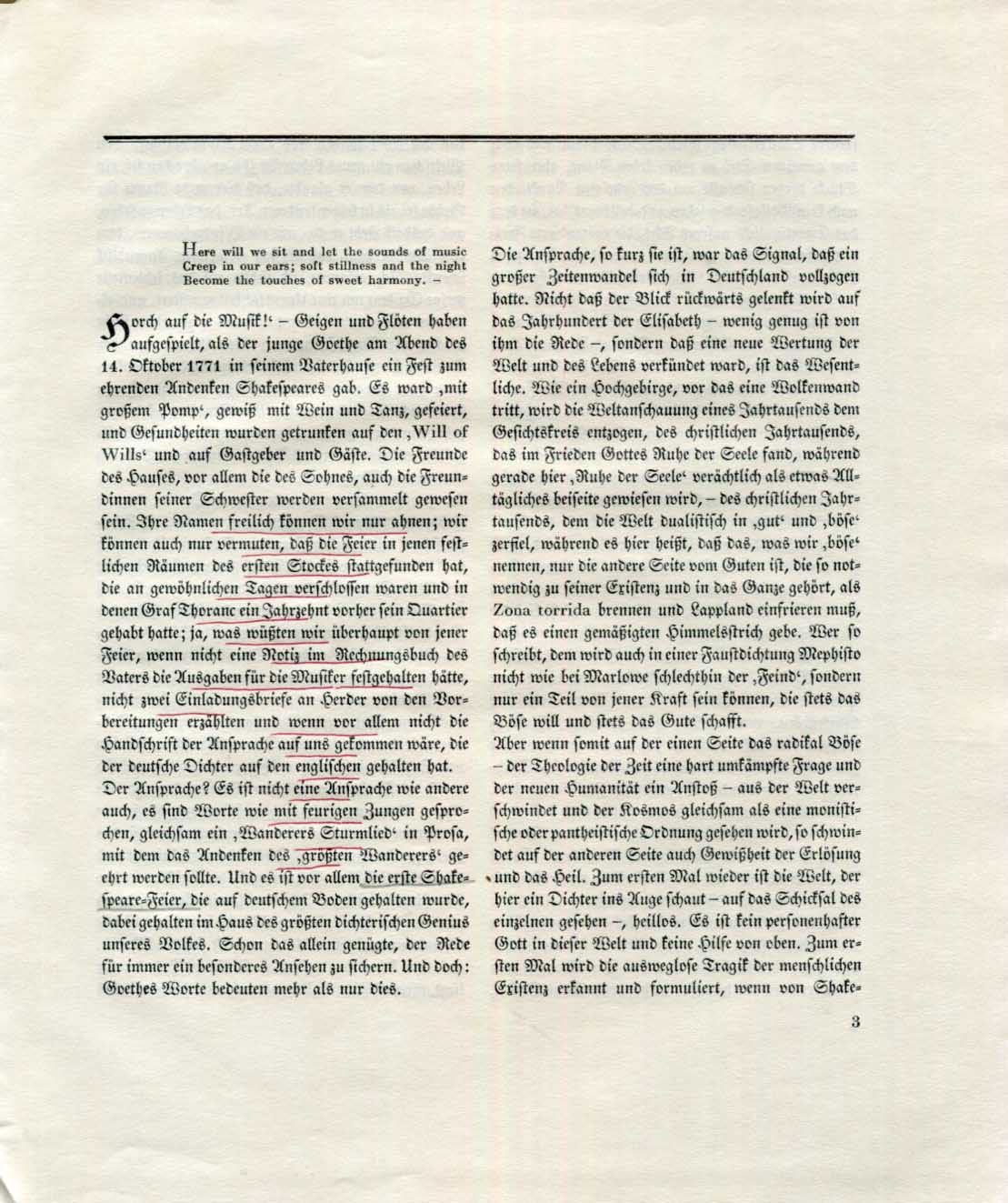Description
Signed booklet: `Goethe - Zum Schäkespears Tag* - Wiedergabe der Handschrift`, in German, published by Goethe Gesellschaft (Institute), Weimar, 1938, hardcover booklet, 7,75 x 9 inch, 20 pages, signed and dedicated (to his daughter Rhena Schweitzer Miller, 1919-2009) on the front cover in blue ink "Albert Schweitzer - Ecriture de Goethe. Autograph - à ma fille - Rhena", with browning & stains to the edges of the cover, and scattered mild signs of wear - in fine condition.
* `Zum Schäkespears Tag` is a speech by the 22-year-old Johann Wolfgang von Goethe, which he delivered in his parents' house on October 14, 1771 on the occasion of Shakespeare Day in Frankfurt am Main; In it he honors the English poet and playwright William Shakespeare for his work and expresses his very personal relationship with him. Along with Herder's program document Shakespear, it is considered an important document of the Shakespeare enthusiasm of the Sturm und Drang period.
Plus d'informations sur la personne
Profession:
(1875-1965) Alsatian polymath. He was a theologian, organist, writer, humanitarian, philosopher, and physician. He received the 1952 Nobel Peace Prize for his philosophy of `Reverence for Life`.
Year of Birth: 1875
Certificat d'authenticité
Toutes nos pièces sont vendues avec un certificat d'authenticité. Si une pièce se révèle être erronée ou si vous n'aimez pas un autographe, vous récupérerez votre argent toute une vie.
Paiement et sécurité
Vos informations de paiement sont gérées de manière sécurisée. Nous ne stockons ni ne pouvons récupérer votre numéro de carte bancaire.



